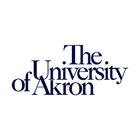- 最新资讯及文章
- Find usIDP AustraliaIDP BahrainIDP BangladeshIDP CambodiaIDP CanadaIDP ChinaIDP EgyptIDP GhanaIDP Hong KongIDP IndiaIDP IndonesiaIDP IranIDP JordanIDP KenyaIDP KoreaIDP KuwaitIDP LebanonIDP MalaysiaIDP MauritiusIDP Middle EastIDP NepalIDP New ZealandIDP NigeriaIDP OmanIDP PakistanIDP PhilippinesIDP Saudi ArabiaIDP SingaporeIDP Sri LankaIDP Taiwan, ChinaIDP ThailandIDP TurkeyIDP UAEIDP VietnamIDP Corporate
- Social
- 简体中文
地点
United States
资格
Ph.D.
费用
USD19192
(2025)
时长
10 Semester(s)
下个学年
22 August 2025
入学成绩
6.5
IELTS考试COURSE_INFO
Your action plan
步骤 1
Shortlist your courses
Choose the best three courses you’re most likely to pursue.
步骤 2
Check your eligibility
Get an instant in-principle offer for courses with the IDP FastLane tag.
步骤 3
Apply through IDP Live
Fill out the form once and use it to apply to multiple courses.






